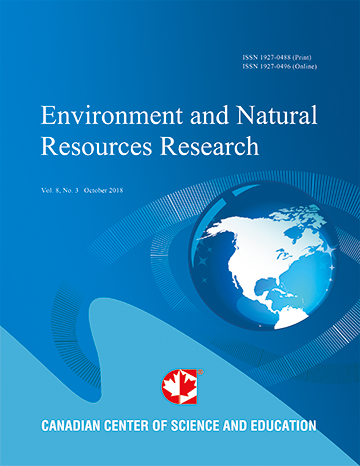WWF’s Green Business Model in Protected Area Conservation and Livelihoods Sustenance in Cameroon: The Need for a Shift in Approach?
- Jude Ndzifon Kimengsi
- Jurgen Pretzsch
- Eckhard Auch
- Balgah Roland Azibo
Abstract
Rising interests to support green development through targeted conservation approaches in the developing world attracted international NGO attention especially in the 1990s. One of such NGOs, the World-Wide Fund for Nature (WWF) has been backstopping many African nations in the process of realizing the twin objectives of livelihood sustenance and protected area conservation. In the case of Cameroon, one of her key areas of intervention has been the introduction of green business initiatives as a way of strengthening the link between livelihood support and conservation in protected areas. With a focus on Cameroon, we review the green business model (Note 1) as a WWF intervention approach in Africa. We undertake a random survey of household representatives drawn from 7 WWF conservation cooperatives in Cameroon on their perceptions and preferences with regards to the green business initiative. This was complemented by interviews to 8 WWF and partner CSO representatives, and field observations. The results are discussed to include a schema of the green business approach in Africa with a focus on Cameroon, cooperative members’ knowledge levels of the initiative, impact of the initiative and clarity of benefit sharing schemes in place, among others. The pairwise correlation shows a strong positive relationship between knowledge/experience levels and a number of elements including shortcomings of the initiative, the need for strategy improvement, and the tendency for outside influence on the green business choices. This aspect equally showed a strong positive correlation with the need to switch to other green business options and unclear benefit sharing. In conclusion, we argue for a shift in the green business approach to capture issues of improvement in knowledge levels, diversification, technical and institutional capacity building, clarity of benefit sharing, and value chain development. We further advocate for a green business approach in tandem with the aspirations of local populations around protected areas on the one hand, and the need for a conservation cooperative alliance on the other hand. The results contribute to the “green economy” discourse which has significantly gained grounds in all spheres of conservation and development interventions.
- Full Text:
 PDF
PDF
- DOI:10.5539/enrr.v9n1p9
Journal Metrics
Google-based Impact Factor (2016): 6.22
h-index (November 2017): 12
i10-index (November 2017): 19
h5-index (November 2017): 11
h5-median (November 2017): 12
Index
Contact
- Emily LinEditorial Assistant
- enrr@ccsenet.org
